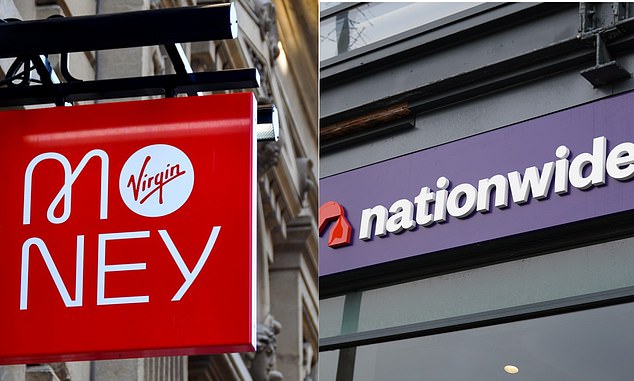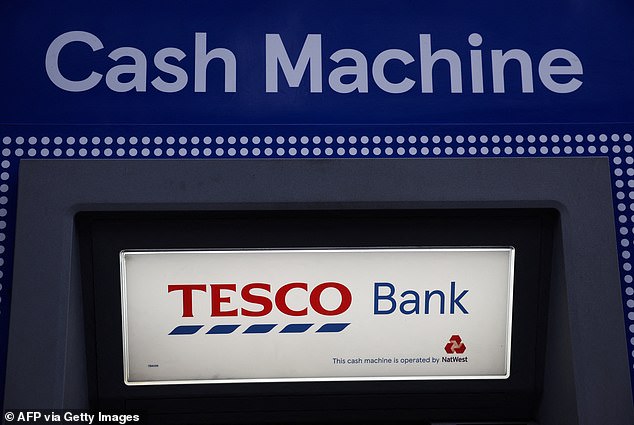Table of Contents
Nationwide’s deal to buy Virgin Money marks the second proposed acquisition of a mid-tier bank in a matter of weeks.
The planned sale of Tesco Bank and Virgin Money to larger rivals is a significant development, not least because they both started out as rivals to the big lenders.
As major banks strengthen their position and digital banks such as Monzo and Starling continue to innovate, these rivals face a more uncertain future.
Acquisitive lenders, low valuations and more flexible neobanks could pose a threat to the original wave of challenger banks, and could mean further consolidation ahead.

Nationwide set to buy Virgin Money – could it be the start of a wave of deals?
What happened to the first wave of challenger banks?
In the 1990s a new type of challenger bank emerged, hoping to disrupt the big four banks: Barclays, HSBC, Lloyds Banking Group and NatWest.
As well as Virgin Money and Tesco Bank, there were Metro Bank, TSB, Aldermore Bank and Sainsbury’s Bank.
Two decades later, a new wave of app-based banks like Monzo and Starling appeared on the scene, and there was real hope that both traditional and digital rivals could revolutionize the market side by side.
But things have not turned out that way.
Some of the mid-tier banks have already been bought by larger banks. TSB was acquired by Spanish banking giant Sabadell in 2015, and South African FirstRand took over Aldermore two years later.
Metro Bank, which opened in 2010, has been plagued by problems that culminated in an emergency cash injection last fall. It has since announced it will make 1,000 staff redundant as part of an £80m cost-cutting drive.
Like Virgin, Tesco and Sainsbury’s entered the market in the 1990s, hoping to use their existing store network to offer banking products.
In the late 90s, the credit market was booming, which changed dramatically when we hit the financial crisis. The benefits they then anticipated have never materialized.
Alper Kara, professor of banking and finance at Brunel University
But Tesco recently sold its banking division to Barclays for £600m, while Sainsbury’s plans to withdraw from the banking market.
“The benefits that were then anticipated have never materialized,” says Alper Kara, professor of banking and finance at Brunel University.
‘One reason is that in the late 90s and early 2000s the credit market was booming, which changed dramatically when we hit the 2007 financial crisis.
“In the post-crisis period, capital requirements for banks’ credit risk became much stricter, making banking even more capital-intensive and expensive.”
While even traditionalists struggled to gain traction as interest rates hit record lows, companies such as Tesco and Sainsbury’s also suffered.
Kara adds: ‘Other mid-tier banks are struggling to compete for the same reasons. Virgin Money lacked scale. Metro Bank, which runs a very expensive branch-based service, suffers from a high cost-to-income ratio, which affects its profits.’
> What will the sale of Virgin Money mean for customers?
Why didn’t the rivals manage to upset the bench?
Rivals have not kept their promise and in recent months the big four banks have gone from strength to strength.
As competition for deposits grows, the challenging economic environment has favored large banks and their large balance sheets.
They can also better absorb the rising costs associated with anti-fraud and money laundering regulation.
Kara says: ‘At its core, the banking business is about economies of scale and requires large deployment of capital. The challenger banks, which are not a uniform group, don’t seem to have enough of either.’


Every little bit helps: Barclays to buy Tesco’s retail banking business in deal worth £600m
The large size of traditional lenders means that it is more difficult for small and medium-sized banks to gain significant ground.
Ian Lance, fund manager at Temple Bar Investment Trust, which owns shares in NatWest and Barclays, says: “Appropriately high regulatory oversight of the banking sector presents a challenge for new companies to gain significant share from traditional banks, perhaps isolating to the bank of the threat”. of obsolescence more than in some sectors, where competition is fiercer and entry barriers lower.
“While consumers frequently switch between broadband providers or utility companies, research has revealed that British citizens rarely switch bank accounts, even if they are dissatisfied with the service they receive.”
Big banks eager to take on more rivals
The other barrier to challenger banks is banks becoming more acquisitive as they finally see their net interest margins and profits rise again.
Laith Khalaf, head of investment research at AJ Bell, says: “Bank valuations are currently low, which encourages acquisitive behaviour, because the buyer can pick up assets at a bargain price.
‘As interest rate spreads are also likely to fall as monetary policy tightens, banks may also be looking for ways to bolster their profits in the medium term, and buying a competitor at an attractive price is a shortcut. towards organic growth.
‘Healthy balance sheets also create the conditions necessary for a cash injection. However, there is a limit to how far the activity can go without raising the alarm at the CMA.’
Most banks trade at low valuations and all trade at discounts to tangible book volume (NatWest has a P/E ratio of 5x and Barclays 4x), meaning there is plenty of scope for bargain hunting.
While Nationwide’s bid for Virgin Money was at a 38 per cent premium to the share price when it was announced, at 220 pence per share, it actually represents a discount to Virgin’s tangible book value of 360 pence per share. action.
With the big banks’ coffers strengthened by higher rates, the original rivals have an uphill battle trying to gain more ground.
They are also challenged by neobanks such as Starling and Monzo to keep pace with digital transformation.
Kara says: ‘Many consumers prefer to bank online using innovative mobile applications. Digital competitors found their own space in the banking market through technological specialization and, by not having branch networks, operating at lower costs.’
These banks, which are often backed by venture capital funds, also tend to be valued for growth rather than profitability, which can alleviate some of the pressure.
“For now they seem to be the main rivals of conventional banks,” adds Kara.
The challenge posed by neobanks has also pushed larger lenders to invest more in their digital capabilities.
Lance says: ‘Banks are incorporating and adapting fintech approaches to change the way they interact with their customers.
“This not only avoids the risk of technological obsolescence – as well-funded banks can devote substantial resources to such efforts – but also makes these processes more enjoyable and efficient for customers, increasing customer experience and retention, and reducing the cost of providing services.’
All of this means that mid-tier banks face challenges from both traditional lenders and brave upstarts. So are recent deals indicative of a broader trend?


Cashplus boss Rich Wagner believes there will be more activity in the banking sector
Rich Wagner, CEO of small business-focused Cashplus Bank, says: “I’ve been predicting consolidation across the digital challenge and broader banking sectors for a few years now, and to be honest, it hasn’t happened that quickly. Not even on the scale I expected.
‘Consolidation plays like Nationwide’s proposed acquisition of Virgin Money don’t necessarily signal the end of the first generation of challenger banks, but they are a demonstration that it often makes sense for larger traditional institutions to buy rather than build.
‘It may also be a sign that the current market valuations of listed banks are creating good conditions for closing deals.
‘I believe the trend of upskilling will continue as innovation is driven by smaller, more agile digital players.
‘But that doesn’t mean that every new rival will be absorbed by a bigger bank. Some will do it alone and I would also expect to see some consolidation among the rivals themselves.’
Some links in this article may be affiliate links. If you click on them, we may earn a small commission. That helps us fund This Is Money and keep it free to use. We do not write articles to promote products. We do not allow any commercial relationship to affect our editorial independence.

